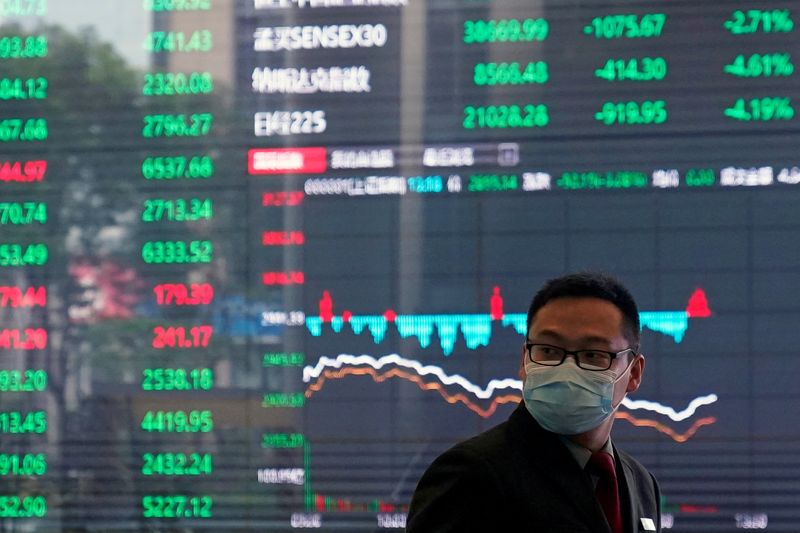By Ambar Warrick
Investing.com-- Most Asian stock markets rose sharply on Thursday after Federal Reserve Chair Jerome Powell said the central bank is set to slow its pace of interest rate hikes, while the relaxing of some anti-COVID measures in China also drove up hopes for a full reopening.
Chinese stocks were among the best performers on the day, with the Shanghai Shenzhen CSI 300 and the Shanghai Composite indexes surging 1.4% and 0.7% to over two-month highs. Hong Kong’s Hang Seng index also jumped 1.6% to a two-month high.
Sentiment towards China was supported by the scaling back of some anti-COVID measures in two cities- Guangzhou and Chongqing- after a string of protests against the government’s strict zero-COVID policy.
But Beijing has so far given no indication that it plans to further scale back the policy, as China grapples with record-high increases in infections.
Weak business activity data released on Thursday also underlined the deepening economic cracks in the country, as anti-COVID measures ground activity to a halt this year.
Still, Chinese markets rallied sharply in recent sessions amid growing hopes that worsening economic growth and increasing public ire will push the government into relaxing its strict zero-COVID policy.
Broader Asian markets rallied on Thursday after Fed Chair Jerome Powell flagged smaller interest rate hikes in the coming months. The move offers some relief to regional markets, which were battered by a sharp jump in interest rates this year.
Technology-heavy bourses benefited the most from Powell’s comments. Japan’s Nikkei 225 index jumped 1.1%, also taking support from stronger-than-expected capital spending figures for the third quarter- a small bright spot in Japan’s otherwise beleaguered economy.
The Taiwan Weighted index added 1.1%, while India’s Nifty 50 and BSE Sensex 30 bourses sailed to record highs.
South Korean stocks lagged their peers, with the KOSPI rising only 0.3% after data showed the country’s trade deficit rose further in November.
Broader concerns over slowing economic growth also persisted, as the Fed’s Beige Book, released on Wednesday, outlined growing pessimism over the world’s largest economy.
Additionally, while Powell did say rate hikes would slow, he also warned that U.S. interest rates could peak at higher-than-expected levels, especially with inflation remaining stubbornly high in the country.
Such a scenario is negative for stock markets in the medium term.
